On June 10th this year, Germany launched its new CovPass app, enabling residents of the country to digitalise their vaccination pass in order to travel more easily around the EU.
READ ALSO: Germany launches new digital Covid health pass
At the time, the Health Ministry claimed the digital vaccination pass would be available to “anyone who wanted it” in pharmacies and GP’s offices by the end of June, offering a “simple, secure and paperless” way to provide proof of vaccination, test results or recovery from Covid-19.
But has the new app delivered on all these promises? And how easy has it been for foreigners to get hold of a digital pass from a local pharmacy – especially if they were vaccinated abroad?
We set out to discover more in a short survey on the new CovPass.
Here’s what our readers had to say.
More than half ‘all set’ with digital vaccine pass
Of the 75 respondents to the survey, 56 percent said they were fully vaccinated and had already got their digital vaccine pass at the time of filling in the survey.
Meanwhile, 21.3 percent said they weren’t quite fully vaccinated, but intended to get the digital CovPass as soon as they were. Around 15 percent of people had struggled to get the pass, while a small proportion said they had no plans to get vaccinated.
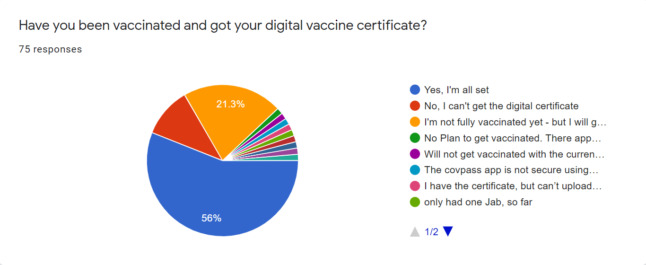
Easy to get and to use – but some problems with foreign vaccine certificates
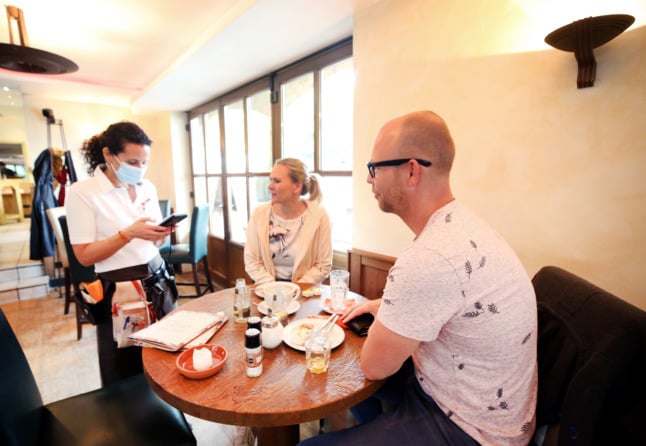
App Store issues
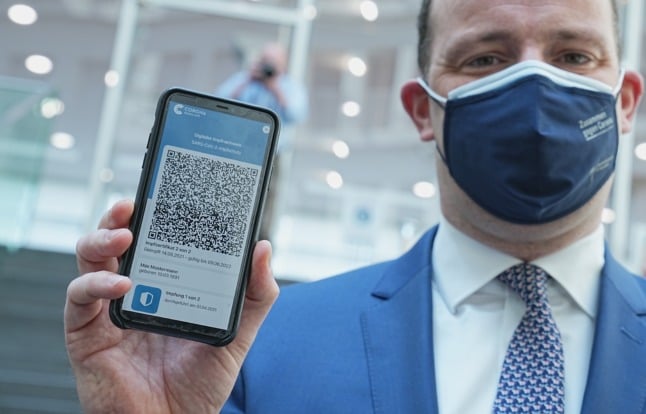
Data protection concerns
With the move to a digitalised system, some readers were concerned at how their data might be used if they switched to the app – and whether the government might then have a means of “tracking” them.
“I will not have an app as it can track me,” said one anonymous respondent. “I will carry a paper negative test.”
Some of the respondents who voiced privacy concerns about the app said they were also worried about the safety of the vaccines.
“I’ve got no plans to use a tool to enable tracking of my movements,” said Phil Cooper, who lives in Schömberg and says he won’t be getting vaccinated due to concerns about side effects.
“I’m not at all in favour of [the digital pass],” he added. “It’s just another means of collecting data on people.”

Some readers are concerned about data privacy in the app, but the government say they have implemented strong protection measures. Photo: picture alliance/dpa/dpa-Zentralbild | Sebastian Kahnert

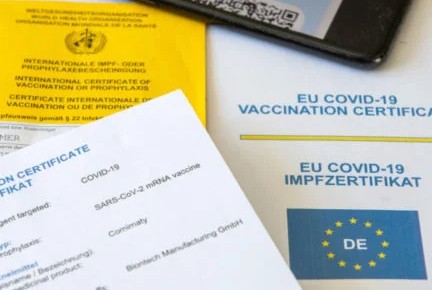
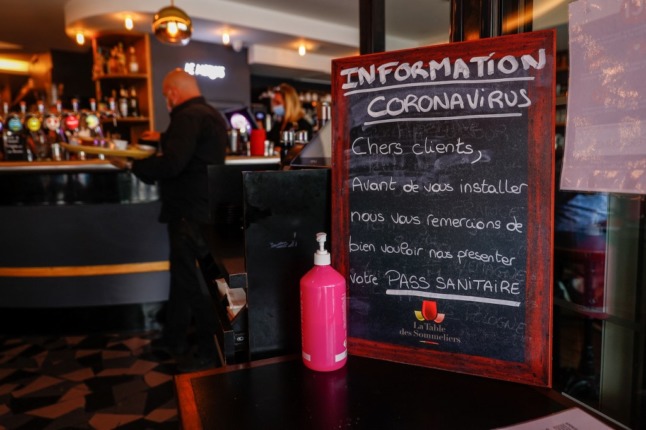
 Please whitelist us to continue reading.
Please whitelist us to continue reading.
Why would anyone have an issue with it?
The absence of regulations and process for non-German vaccination certificates – “pharmacy shopping”, really? – is practically scandalous.
Does anyone know a pharmacy in or around Munich that can and will digitize a US CDC vaccination card?
I’m fully vaccinated and have the CovPass app. I’ll share my work around for it only being available in the Apple German App Store.
I created a second Apple ID that has its country set to Germany. Then I logged out of my account for the Apple App Store and iTunes. Next I logged in with my German Apple ID. I then downloaded any of the Germany only Apps like CovPass and CovPass Check. Last I logged out of the Apple App Store and back in with my US account.
At that point it was easy to scan the QR code in using the CovPass app. I got my vaccination from a local doctor in Berlin on the 30th of June and they already had the proper paperwork. Hope this helps someone.
This a link to the steps I followed to change my account. I followed the section titled ‘The Benefits of Creating a Second Apple ID Account’.
https://www.makeuseof.com/tag/dont-switch-international-itunes-media-app-store-youve-read/
The only issue is they got my vaccination dates backwards because I was vaccinated on a US base and despite advising the correct dates several times they insisted on telling me I was vaccinated on different dates than I was. Go figure. So, it basically says I was vaccinated 3 months before I actually was. It will only matter if they limit how far back a vaccine is valid.